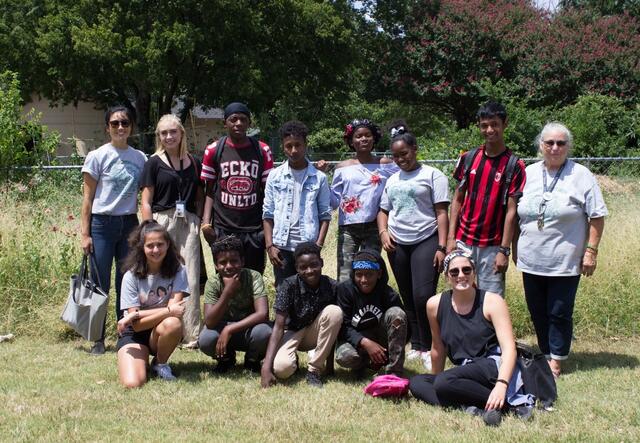
One hot July afternoon, eight high school students work together in a warm church kitchen to prepare a multicultural meal fit for a king. Two students stand over the stove stirring fig and strawberry jam prepared with fruit picked from the orchard outside. Three other students sit at the table chopping cabbage, peppers, and carrots, while another learns how to winnow buckwheat on the porch out back.
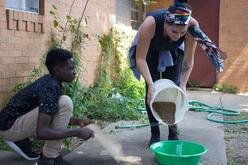
This is just an average Thursday for these teenagers.
Earlier this spring, dozens of teenagers applied for a coveted position in the Youth Food Justice program, a selective internship program led by the International Rescue Committee in Dallas. After an intense application and interview process, eight of these teens were selected to begin the journey of a lifetime.
Although it began as an after-school program, Youth Food Justice has developed into an intense, six-week internship using food and agriculture as a platform for job readiness skills, social justice, and community engagement. The selected students have the opportunity to engage in a series of meaningful activities and outings that broaden their skillsets and prepare them for college and beyond.
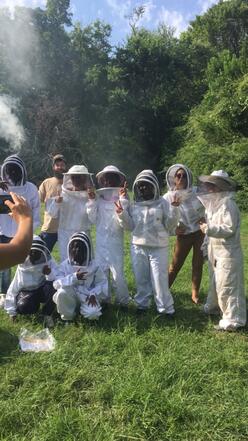
Each week consists of three unique days. On Tuesdays, the teens focus on job readiness skills such as resume building and interview techniques. They also explore their PhotoVoice project, a photo-based research project focused on utilizing imagery to raise youth voices. On Wednesdays, they take field trips to local farms and businesses that focus on food and agriculture. Thursdays may be the most exciting as they have the chance to get their hands dirty, cooking and eating new recipes in the kitchen. Each week they enjoy different recipes, sampling the foods of different cultures represented in the group and beyond (but no one is excited about washing the dishes!).
During these six weeks, the students not only learn agricultural skills and knowledge but practice interpersonal and job readiness skills that prepare them for college or the workforce. One day was spent learning how to find and apply for a job and discussing four-year college alternatives, while another was dedicated to resume building and skills identification. In a session discussing their experiences during the internship, students identified teamwork, public speaking, and leadership as some transferable skills they had refined through the program.
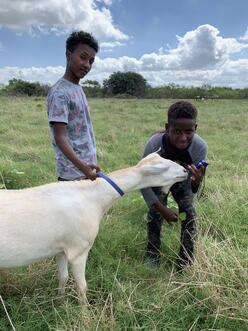
Tiriza, one of the Youth Food Justice interns, said with a smile that she was enjoying her internship. When asked, each student expressed they’d had a positive experience in the program. Watching the different students interact shows that each teen brings their own unique energy and personality, which is both valuable and challenging. What began as eight individuals quickly became a tightly knit group with as much vibrancy and fire as one would expect from a group of teenagers.
Youth Food Justice provides a space for high-school students to be creative and “play.” Yui Iwase, the program director for New Roots and Youth Food Justice at the IRC in Dallas, says there is a need for more spaces in which high-school students can let loose and be themselves within set boundaries. Iwase says that Youth Food Justice, much like the entire New Roots program, is “creating a safe place for people to come and be.”
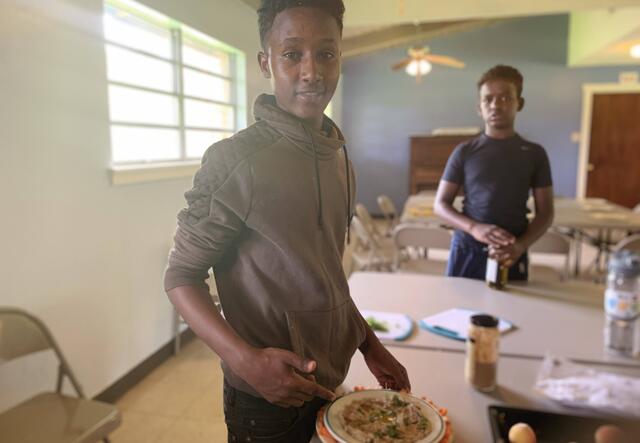
Story by Anastasia Murphy